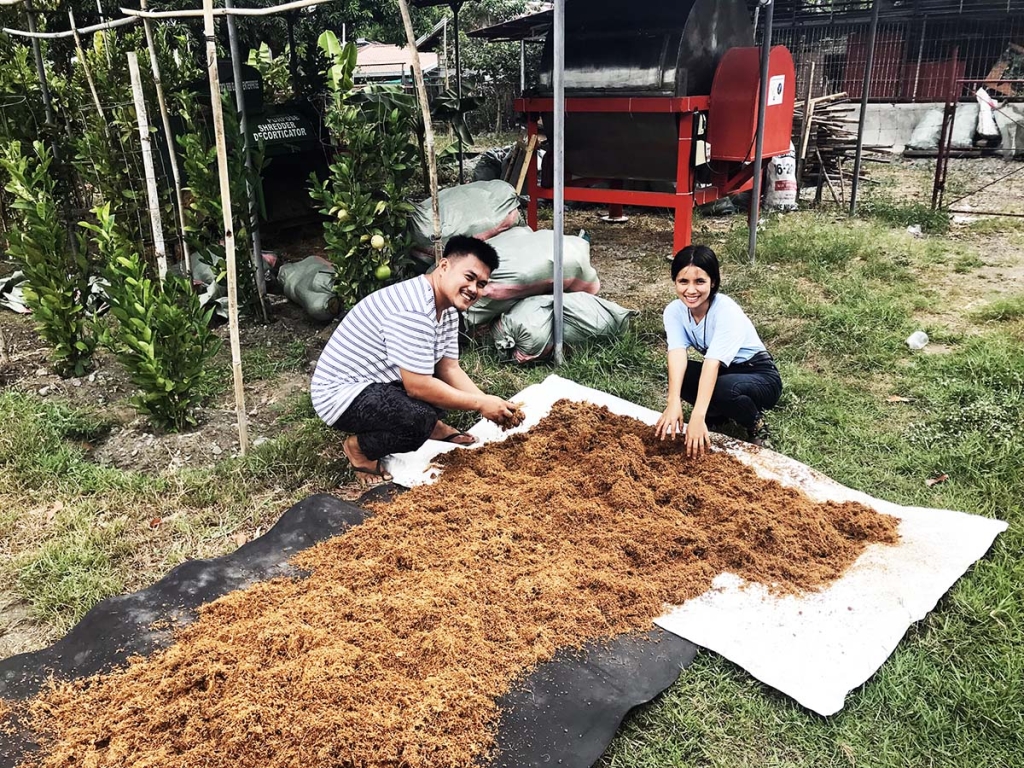PHILIPPINES: Farmers learn sustainable organic practices

Don Bosco Training Center in San Jose teaches organic agricultural production
(MissionNewswire) Salesian missionaries have operated the Don Bosco Training Center in San Jose, Philippines, since 1995. An organic agricultural production course was launched three years ago in response to the government’s call to augment the food production industry.
The Salesian diocese of San Jose is in a region which is known as the country’s rice granary. Rice is the staple food in the Philippines, and 80 percent of the population are farmers. The most recent course helps protect the environment through sustainable organic farming.
“Providing education to help youth and local farmers cultivate the land helps to make their farms more productive and show that farming can be a reliable source of income,” said Father Gus Baek, director of Salesian Missions, the U.S. development arm of the Salesians of Don Bosco. “Missionaries provide education and workforce development paired with other social services to help poor youth break the cycle of poverty and have hope for the future. This also helps their families and communities.”
Don Bosco Training Center is not the only farming education that Salesians provide in the region. In the mid-1980s, Salesian Bishop Leo Drona founded the Gratia Plena Social Action Center to help the poor farming population after a destructive typhoon. It considers organic agriculture as a strategic response to environmental issues by promoting sustainable farming methods.
Through the Gratia Plena Social Services Center, Salesians support and guide farmers to acquire skills and the know-how to boost the local economy. The center also works in partnership with small-scale farmers, cooperatives, and development practitioners who believe in organic practices of producing food for life, health, and the environment. Salesians are exploring possibilities for the Don Bosco Training Center to work in closer collaboration with Gratia Plena Social Services Center.
Since 1950, Salesian Missions has been providing crucial help in the Philippines — working with at-risk youth, impoverished families and disaster victims. Humanitarian agencies warn of the dangers faced by the most disadvantaged children in the Philippines. There are at least 1.2 million children between the ages of 5 and 15 who are out of school and are being left behind. In addition, children born into the poorest 20 percent of the population are almost three times more likely to die during their first five years as those from the richest 20 percent.
Poverty rose sharply in the Philippines due to the COVID-19 pandemic. According to the World Bank, close to 4 million people became poor in the first half of 2021 due to pandemic-induced lockdown measures that dried up jobs and reduced domestic demand. Poverty incidence in the Philippines rose to 23.7 percent from 21.1 percent, indicating 3.9 million more people are living in poverty now than in 2018 when the statistics were last verified.
###
Sources:
ANS Photo (usage permissions and guidelines must be requested from ANS)
ANS – Philippines – Organic Agricultural Production a way to protect the environment
Salesian Missions – Philippines
World Bank – Philippines





